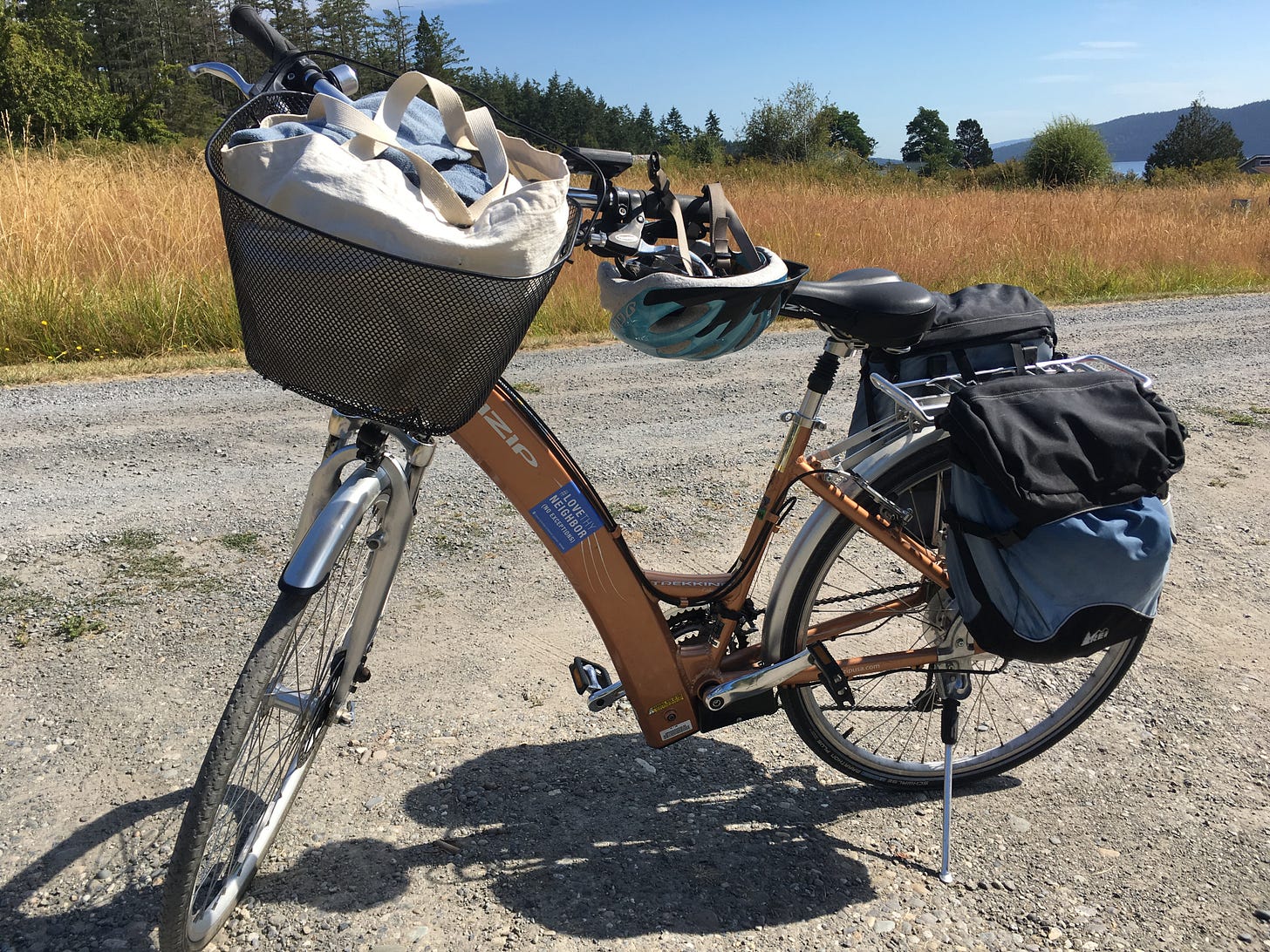Biking Proud
by Editor Iris Graville
It had been a long time since I’d let out a “Woohoo!” while riding a bike. But twenty years ago, that’s the sound that escaped the first time I pedaled a friend’s electric bicycle up the gravel lane to my house.
Although my rural home in Washington State’s Salish Sea is known as “the flat island,” it has plenty of hills to tax my aging knees and lower back. Ever since that test ride, though, I’ve breezed through headwinds and ascended inclines on my own electric hybrid bicycle, sailing past farm houses and grazing cows on my way to the market, bank, and post office.
My first e-bike, an arctic blue Merida Powercycle, had a 24-volt lead-acid battery. I only needed moderate pedaling to conquer grades even a serious cyclist might strain over. As a friend says, “It’s like having an angel at your back pushing you up a hill.”
A few years ago, after riding the Merida for many miles—and replacing two batteries—I decided to upgrade to an IZIP Trekking electric bike. My pedal-assist model is po…



